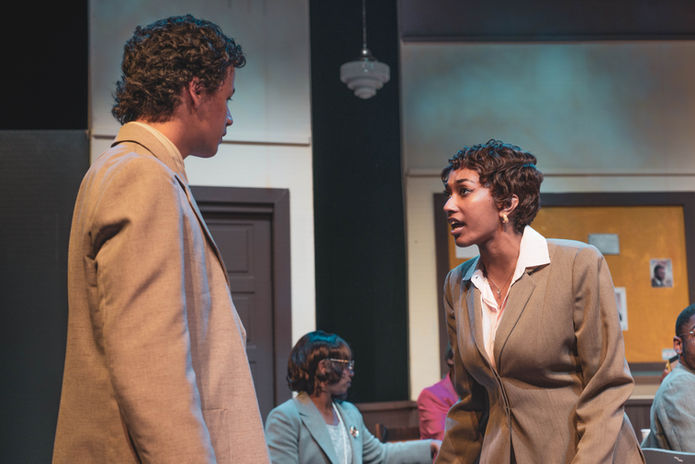
THEATRE
WELCOME TO THE THEATRE DEPARTMENT
We are looking for students who are committed to contributing to the world in which they live and developing their artistic and intellectual abilities. The study of theatre is a life-long activity and requires the student to develop multiple skills across many disciplines. In addition to rigorous training in acting, movement and speech, students study theatre history, dramatic literature, playwriting and directing. We place emphasis on individual growth, discovery of personal strengths, critical thinking, process oriented work and the ensemble approach to making theatre.
Our program is demanding and requires a high level of commitment from our students. In addition to opportunities to perform onstage at Ellington our students have extensive opportunities to work with professional artists and theatre companies from around the country and the world.

A NOTE FROM THE
THEATRE CHAIR
More information coming soon!
KEN JOHNSON
THEATRE DEPARTMENT CHAIR

MISSION STATEMENT
To educate imaginative, knowledgeable, skilled, and responsible artists, audience members, and advocates for the theatre of the future is our vision. Therefore, our mission is: To create artists who are empowered in spirit, in art, and in business.
The word theatre comes from the Greeks. It means the seeing place. It is the place people come to see the truth about life and the social situation. The theatre is a spiritual and social x-ray of its time. The theatre was created to tell people the truth about life...
- Stella Adler
STAY IN THE KNOW
THEATRE FAQS
-
There are no open positions at this timePlease check back later
UPCOMING EVENTS
INFORMATION ON THEATRE ART FEES
Duke Ellington students are required to pay a yearly activity fee of $200, which directly benefits the arts department in which they are enrolled. This fee should be paid at the time of registration, but can be paid in installments. Money orders and checks should be made payable to DESAP.
Students in the Theatre departments are also required to participate in department fundraisers and sell a minimum number of tickets to each production. These efforts help the Theatre department to mount productions, provide artist honorariums for master artist workshops and residencies, and provide costumes/props/sets for department productions.













